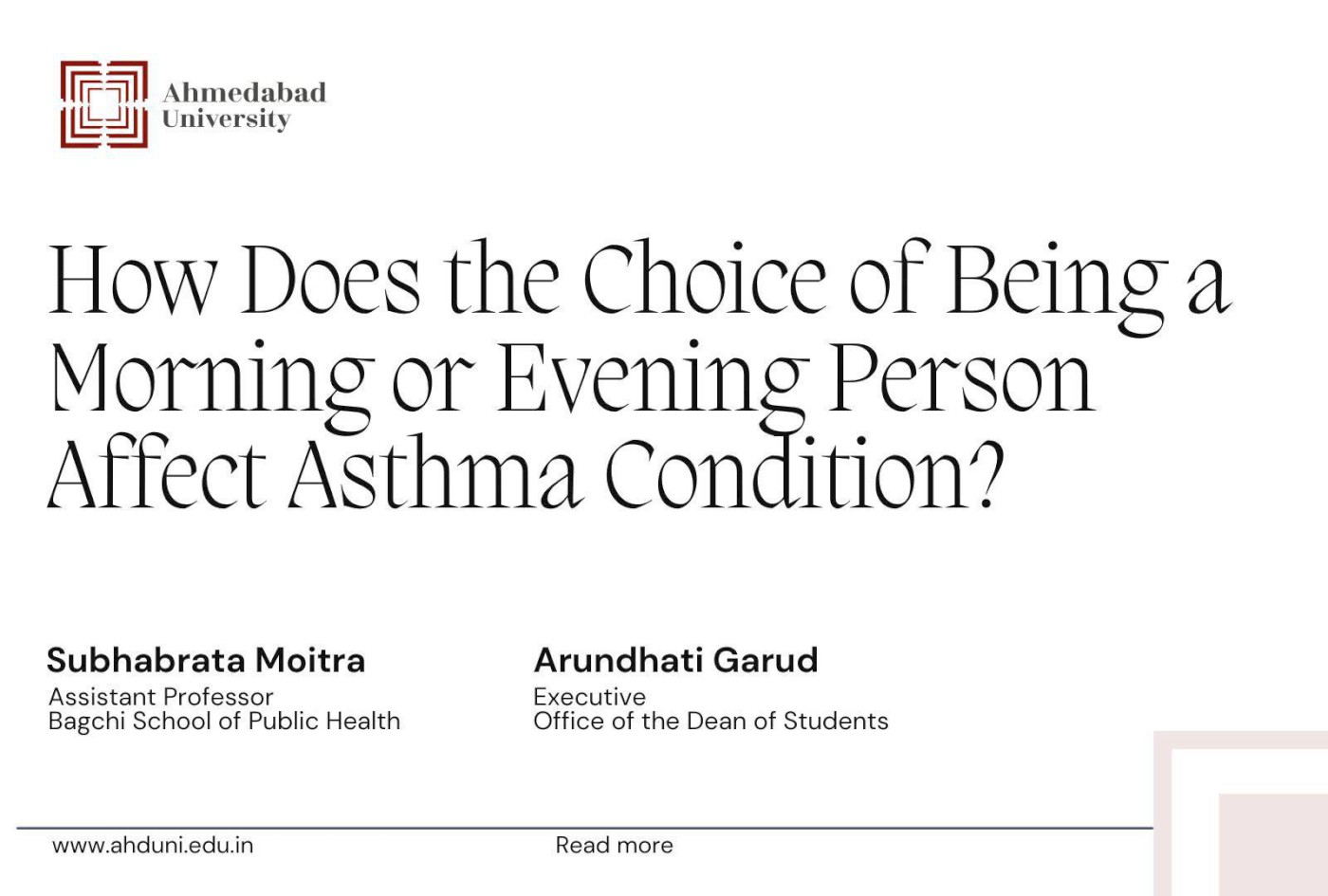14 April 2025
How Does the Choice of Being a Morning or Evening Person Affect Asthma Condition?

An individual’s preference for being a morning or evening person, also known as chronotype, can determine how susceptible one is to chronic ailments. A recent multicentre study showed how the chronotype influences health-related quality of life (HRQL) in adults with conditions such as asthma.
The study, helmed by Subhabrata Moitra, Assistant Professor from Ahmedabad University’s Bagchi School of Public Health, surveyed 691 adults with asthma from Canada, India, New Zealand, and the United Kingdom. Participants completed a digital questionnaire covering lifestyle, mental health, sleep habits, and asthma experience.
Findings reveal that higher morningness was invariably associated with less fatigue and better emotional function across all countries. This association was stronger among males and those with a lower risk of comorbidities. Lower levels of anxiety, depression, sleep disturbance, and alcohol abuse mediated these positive effects. Interestingly, morning-type individuals with poor medication adherence still reported better HRQL. Greater routine adherence, regular physical activity, and lower stress levels could be the reasons, as these factors contribute to better immune function and reduced inflammation, which are prerequisites for managing asthma symptoms.
Eveningness, by contrast, is often linked to circadian misalignment. This results from a mismatch between biological rhythms and social schedules like work, food, and sleep. Erratic sleep and eating patterns due to evening preferences can worsen asthma symptoms and reduce quality of life. Overexposure to artificial light at night, particularly blue-white light from devices, may further disrupt circadian rhythms in evening-type individuals.
This study extends Professor Moitra’s earlier work, where the group showed artificial light at night (ALAN), evening chronotype, and night shift work exposures were associated with a 88%, 35%, and 33% higher odds of allergic diseases, respectively.
Although eveningness is not equivalent to night shift work, research has shown that night shifts disrupt immune pathways, many of which are linked to asthma. Nearly all immune functions follow circadian rhythms, and factors like poor sleep or irregular schedules can compromise immune health, aggravating asthma.
The study, conducted in collaboration with researchers from the University of Alberta, University of Birmingham, Medical Research Institute of New Zealand, University of Ferrara, and several other Indian and European institutes, was reportedly the first-of-its-kind to investigate the role of chronotype in HRQL for asthma patients, spans diverse regions, populations, and cultural contexts, making its findings broadly applicable. While researchers suggest the need for more targeted investigation before recommending chronotype modification as an intervention, the study advocates the importance of behavioural and psychological factors in asthma management.
Published in JACI Global, a journal of the American Academy of Allergy, Asthma and Immunology (AAAAI), the study Association Between Higher Morning Preference and Better Health-related Quality of Life in Asthma paves the way for clinicians to consider chronotype as a determinant of HRQL, encouraging a patient-centred approach that integrates mental health, behaviour, and lifestyle into care strategies.



